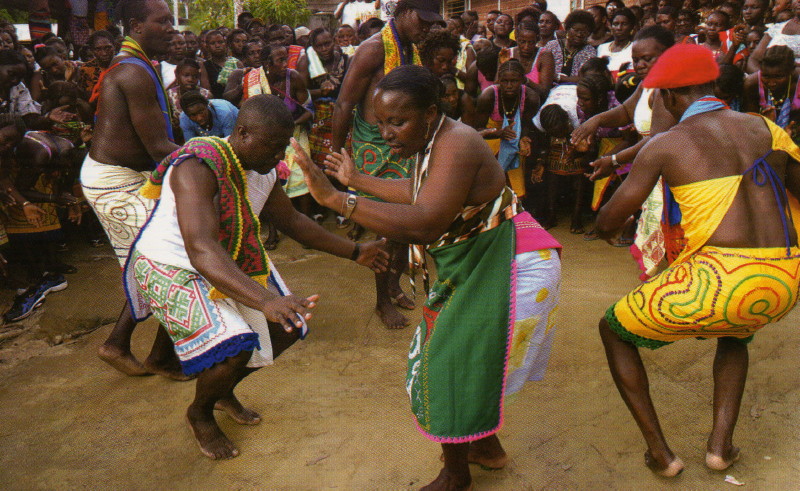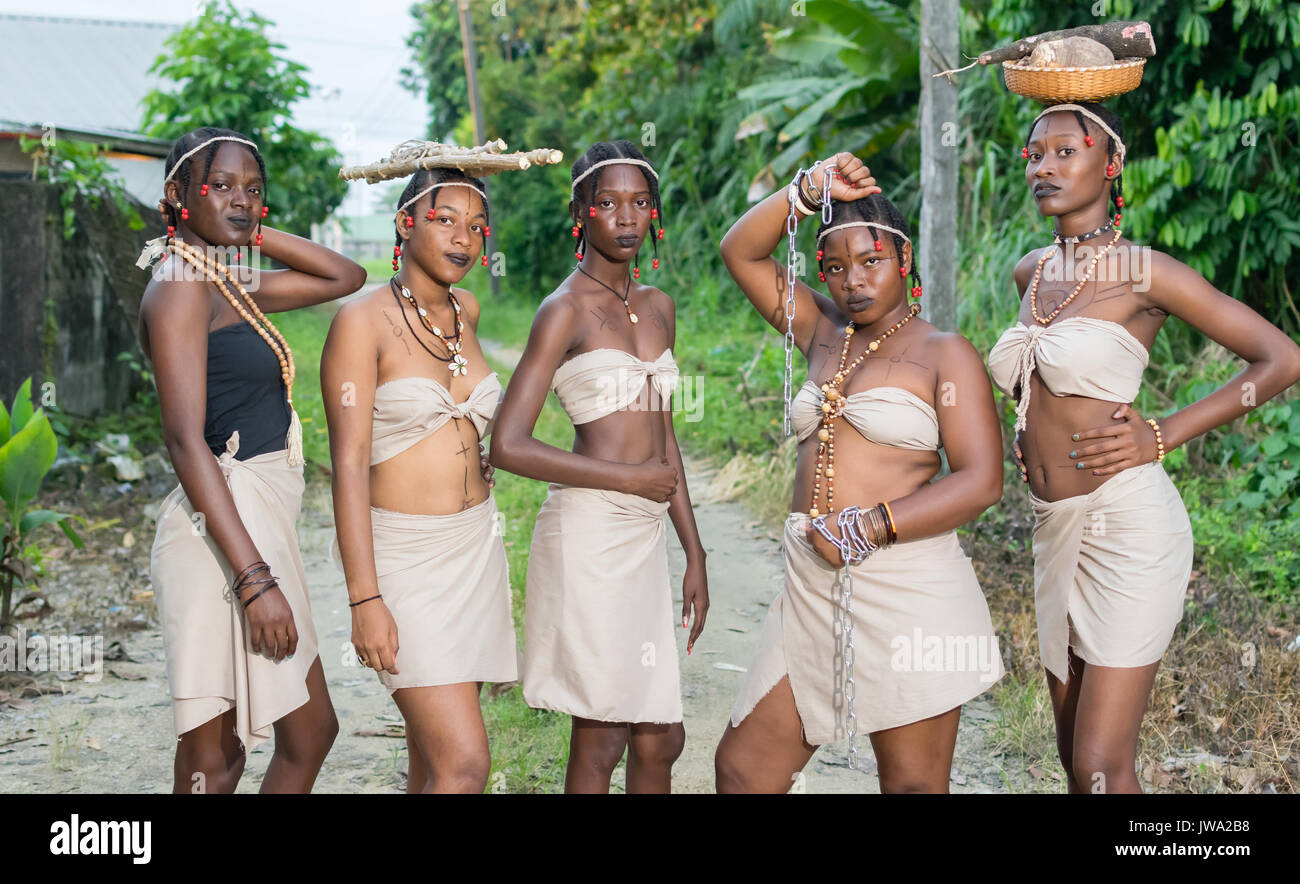Exploring the rich and vibrant Afro-Surinamese culture is like embarking on a fascinating journey into the heart of Suriname’s history. From its roots in West Africa to its present-day celebrations and traditions, this article takes you on a captivating exploration of this unique and diverse culture. Immerse yourself in the colorful festivals, tantalize your taste buds with traditional Surinamese cuisine, and discover the deep connection between music, dance, and spirituality. Brace yourself for a deep dive into Afro-Surinamese culture, where every aspect unveils a vibrant tapestry of heritage and identity.
History of Afro-Surinamese Culture
Origins in the Trans-Atlantic Slave Trade
The Afro-Surinamese culture has deep roots tied to the trans-Atlantic slave trade. During the Dutch colonial period in Suriname, large numbers of African people were forcibly brought to the region as slaves to work on the plantations. This tragic history laid the foundation for the development of a distinct Afro-Surinamese culture, as the African slaves brought with them their languages, customs, and traditions.
Maroon Communities and Resistance Movements
In response to the harsh conditions of slavery, many enslaved Africans escaped and formed independent communities known as Maroon communities. These communities were located in the Surinamese rainforest and became strongholds of resistance against the Dutch colonial authorities. The Maroons developed their own cultural practices and traditions, blending aspects of their African heritage with elements from the indigenous peoples of the region. This resistance and cultural fusion played a significant role in shaping the Afro-Surinamese culture we know today.
Colonial Influence and Cultural Syncretism
Colonial influence from the Dutch and other European powers also played a significant role in shaping Afro-Surinamese culture. As the Dutch exerted their dominance over Suriname, they brought with them their own language, religion, and traditions. This colonial influence, combined with the cultural practices of the African slaves and Maroons, led to a process of syncretism, where elements from different cultures merged to create a unique Afro-Surinamese identity. This cultural syncretism can be seen in various aspects of Afro-Surinamese life, such as language, religion, and art.
Cultural Practices and Traditions
Languages Spoken in Afro-Surinamese Communities
Afro-Surinamese communities are linguistically diverse, with various languages spoken among different groups. Sranan Tongo, a Creole language derived from English, is widely spoken and serves as a lingua franca among Afro-Surinamese people. Additionally, several African languages, such as Saramaccan and Aukan, are still spoken by Maroon communities. The preservation and use of these languages contribute to the richness and diversity of Afro-Surinamese culture.
Traditional Dress and Fashion
Afro-Surinamese traditional dress and fashion are a vibrant reflection of the cultural heritage of the community. Traditional attire often consists of brightly colored fabrics, such as African wax prints, which are used to create elaborate costumes and garments. These vibrant outfits are worn during special occasions, cultural celebrations, and festivals, allowing individuals to showcase their pride in their Afro-Surinamese identity.
Musical Expressions and Dance Forms
Music and dance play a central role in Afro-Surinamese culture, serving as forms of self-expression, storytelling, and communal celebration. Influenced by African rhythms and melodies, Afro-Surinamese music encompasses various genres, such as kaseko, surinam jazz, and kawina. These genres often feature lively percussion instruments like the tambu and bass drums. Likewise, dance forms such as kawina dancing and kawina line dancing are deeply embedded in Afro-Surinamese celebrations, providing a rhythmic and energetic expression of cultural pride.
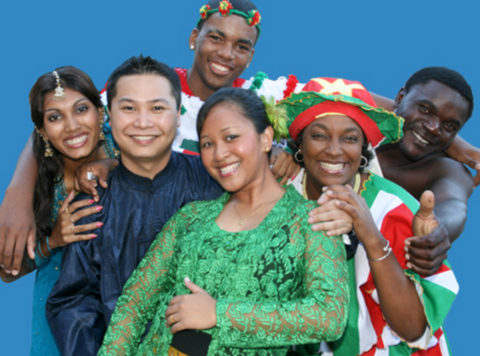
Religious Beliefs and Practices
Traditional African Religions and Spirituality
Afro-Surinamese culture has strong ties to traditional African religions and spirituality. Many individuals within the community continue to practice ancestral worship and believe in the presence of spirits within nature. These beliefs and practices are deeply intertwined with daily life, with rituals and ceremonies held to honor ancestors, seek guidance, and ensure spiritual well-being. Traditional healing practices, involving the use of herbal remedies and spiritual cleansing, also play a significant role in the Afro-Surinamese religious landscape.
Influence of Christianity and Islam
Christianity and Islam have also made a significant impact on Afro-Surinamese religious beliefs and practices. During the colonial period, the Dutch introduced Christianity to the region, and today, a large portion of Afro-Surinamese people identify as Christian, belonging to different denominations such as Protestantism and Catholicism. Similarly, Islam gained a foothold in Suriname through the arrival of Indo-Surinamese immigrants, who brought their Islamic faith with them. The interplay between traditional African religions and these imported religions has resulted in a unique religious landscape within the Afro-Surinamese community.
Syncretic Religious Movements
In addition to the traditional African religions, Christianity, and Islam, Afro-Surinamese culture is also shaped by syncretic religious movements. These movements blend elements from different religious traditions to form new belief systems. For example, Winti is a syncretic religion that combines African spiritual practices with Christian and indigenous influences. Winti rituals often involve drumming, singing, and dancing, serving as a connection between the spiritual and physical realms. The proliferation of syncretic religious movements reflects the continued evolution and adaptation of Afro-Surinamese spirituality.
Cuisine and Culinary Traditions
Traditional Ingredients and Dishes
Afro-Surinamese cuisine is a delicious fusion of African, Indigenous, and European culinary traditions. Influenced by the availability of ingredients in Suriname, traditional dishes often feature rice, root vegetables, leafy greens, and a variety of proteins such as fish, chicken, and pork. Commonly used spices and herbs include cumin, coriander, and Surinamese chili peppers. Traditional Afro-Surinamese dishes include stews like pom and moksi alesi, as well as snacks like pastechi (fried pastries) and saoto soup.
Importance of Rice and Staple Foods
Rice holds a special place in Afro-Surinamese cuisine and is considered a staple food. Suriname’s fertile landscapes have allowed for the cultivation of rice, making it abundant and widely consumed. Rice dishes like nasi goreng (fried rice) and moksi meti (mixed rice) have become popular not only within the Afro-Surinamese community but also throughout the broader Surinamese population. The cultural significance of rice reflects its role in sustaining and nourishing the Afro-Surinamese people for generations.
Cultural Significance of Food Preparation
Food preparation in Afro-Surinamese culture is more than just a means of sustenance—it is a cultural expression and a way to connect with family and community. Cooking traditional dishes involves time-honored techniques and recipes passed down through generations. Many Afro-Surinamese households pride themselves on their culinary skills and the ability to create dishes that capture the essence of their cultural heritage. Food is often shared during communal gatherings, fostering a sense of unity and belonging.
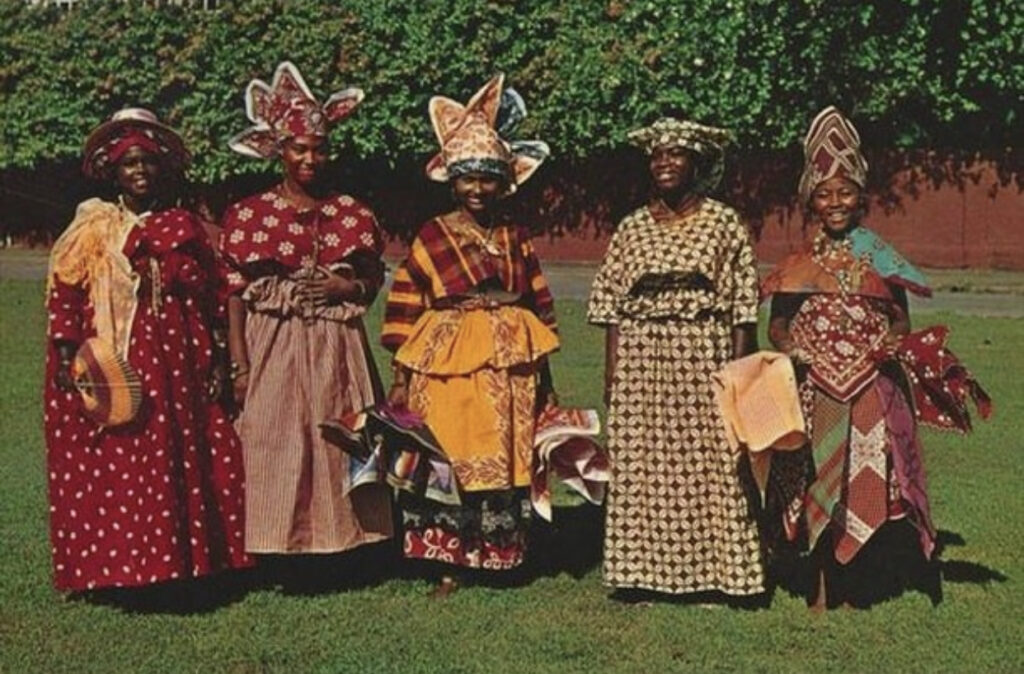
Art and Craftsmanship
Traditional Visual Arts
Afro-Surinamese art is a diverse and dynamic form of expression, with influences from both African and Surinamese cultures. Traditional visual arts encompass a wide range of mediums, such as paintings, sculptures, and textiles. Symbolism plays an important role in Afro-Surinamese art, often representing ancestral spirits, nature, and cultural identity. Artists utilize vibrant colors, intricate patterns, and skillful craftsmanship to convey stories, beliefs, and emotions unique to the Afro-Surinamese experience.
Basket Weaving and Pottery
Basket weaving and pottery are traditional crafts that are deeply rooted in Afro-Surinamese culture. Skilled artisans create intricate baskets using locally sourced materials, such as palm leaves and rattan. These baskets serve both practical and decorative purposes, often used for storing food or carrying items. Similarly, pottery-making is an ancient craft, producing vessels and utensils that display the creativity and craftsmanship of Afro-Surinamese artisans.
Woodcarving and Sculpture
Woodcarving is another traditional art form that holds cultural significance within Afro-Surinamese communities. Skilled woodcarvers create intricate sculptures depicting ancestral figures, animals, and mythological beings. The craftsmanship and attention to detail in these wooden sculptures are a testament to the rich artistic heritage of the Afro-Surinamese people. These art forms serve as a visual representation of cultural stories and beliefs, preserving and celebrating Afro-Surinamese identity.
Cultural Celebrations and Festivals
Keti Koti: Commemorating Emancipation
Keti Koti, meaning “breaking the chains” in Sranan Tongo, is a significant cultural celebration that commemorates the abolition of slavery in Suriname. Held on July 1st every year, Keti Koti is a time for reflection, remembrance, and celebration of freedom. Afro-Surinamese communities come together to participate in various activities, including traditional dances, drumming, religious ceremonies, and informative lectures that highlight the history of slavery and the ongoing fight against racism and injustice.
Winti Celebrations: Honoring Ancestors
Winti celebrations are essential religious and cultural practices within the Afro-Surinamese community. These celebrations honor the ancestral spirits and seek blessings for health and well-being. Winti ceremonies often involve drumming, singing, and dancing, creating a lively and spirited atmosphere. Participants dress in traditional attire, and offerings such as food, drinks, and flowers are presented to the ancestors. Winti celebrations serve as a powerful reminder of the deep spiritual connections and cultural heritage preserved within the Afro-Surinamese community.
Saramaka Culture Week: Showcasing Maroon Heritage
Saramaka Culture Week is an annual event dedicated to celebrating and showcasing the cultural heritage of the Saramaka Maroon community. During this week-long celebration, Saramakaners gather to participate in traditional dances, music performances, storytelling, and various cultural activities. Visitors have the opportunity to immerse themselves in the vibrant traditions and customs of the Saramaka Maroons, gaining a deeper understanding of their history, resilience, and contributions to Afro-Surinamese culture.
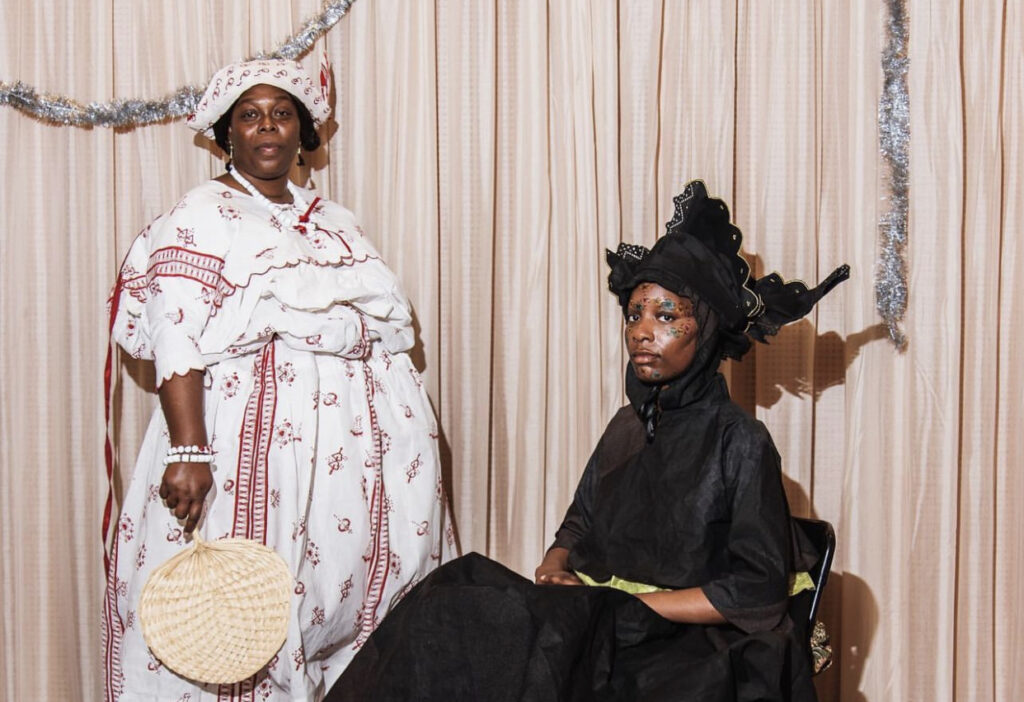
Education and Language Preservation
Challenges in Afro-Surinamese Education
Education within the Afro-Surinamese community has faced numerous challenges, including limited resources, discrimination, and cultural marginalization. Historically, Afro-Surinamese individuals have been underrepresented in higher education and professional fields, leading to socioeconomic disparities. Efforts to address these issues include advocating for equal educational opportunities, promoting culturally inclusive curricula, and providing scholarships and mentorship programs to support Afro-Surinamese students.
Efforts to Preserve Indigenous Languages
Preserving indigenous languages is crucial to maintaining the cultural heritage of Afro-Surinamese communities. In recent years, there has been a growing movement to revitalize and preserve African languages spoken within the community, such as Saramaccan and Aukan. Language preservation initiatives include language classes, literature programs, and the documentation of oral histories. These efforts not only foster a sense of cultural identity and pride but also contribute to intergenerational knowledge transmission within the Afro-Surinamese community.
Promoting Afro-Surinamese History and Heritage
Promoting Afro-Surinamese history and heritage is vital for preserving cultural identity and challenging historical disparities and stereotypes. Organizations and individuals have been actively engaged in researching and documenting Afro-Surinamese history, hosting exhibitions, and developing educational resources that highlight the contributions and resilience of Afro-Surinamese people. By amplifying Afro-Surinamese voices and narratives, these initiatives foster a greater understanding and appreciation for the unique cultural heritage of the Afro-Surinamese community.
Gender Roles and Identity
Influence of Matrifocal Family Structures
Afro-Surinamese culture has historically been characterized by matrifocal family structures. Matrifocality places emphasis on female-headed households and recognizes the central role of women in family and community life. Women are often the primary caregivers, decision-makers, and providers within Afro-Surinamese households. This matrifocal structure has shaped gender roles and expectations within the community and continues to influence the social dynamics and gender norms observed among Afro-Surinamese individuals.
Traditional Gender Roles and Expectations
Traditional gender roles within Afro-Surinamese culture often reflect labor division and responsibilities. Men are typically associated with physically demanding tasks, such as farming and fishing, while women are heavily involved in domestic work and child-rearing. These gender roles, while rooted in historical and cultural contexts, are not prescriptive and have evolved over time. Contemporary Afro-Surinamese society has seen a significant shift towards embracing gender equality, challenging traditional roles, and empowering women in various fields.
LGBTQ+ Identity in Afro-Surinamese Culture
The Afro-Surinamese community is diverse in its expressions of gender and sexuality. LGBTQ+ individuals contribute to the rich fabric of Afro-Surinamese culture, challenging societal norms and fostering inclusivity. While there are ongoing conversations and evolving attitudes regarding LGBTQ+ rights within the community, some individuals face prejudice and discrimination due to deeply embedded heteronormative beliefs. However, Afro-Surinamese LGBTQ+ individuals continue to assert their identities and advocate for equality, making significant strides towards inclusion and acceptance.
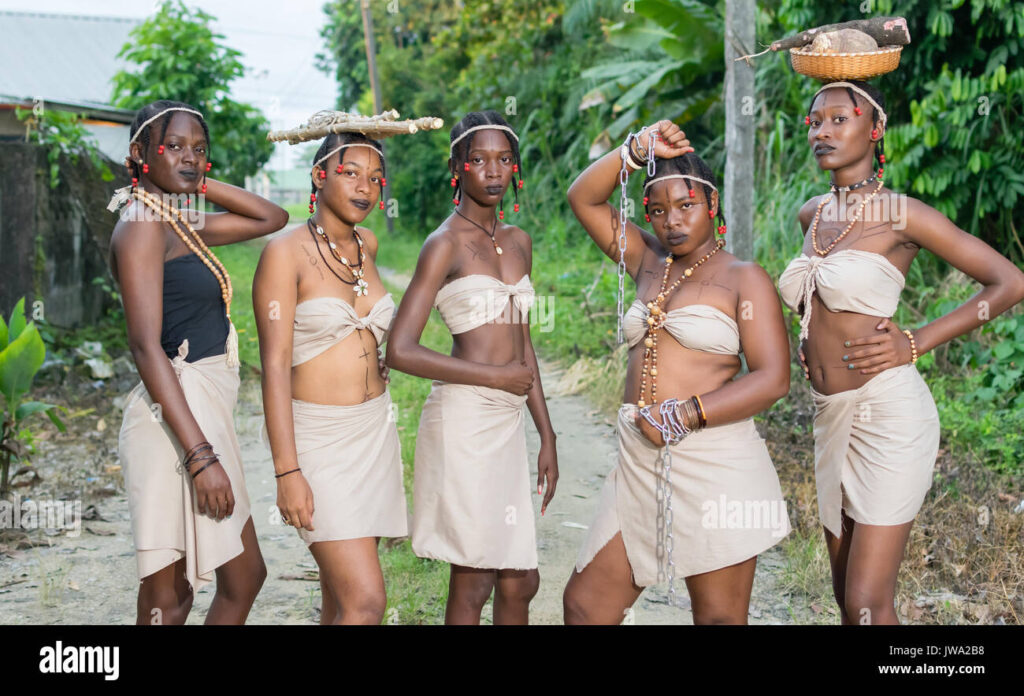
Sports and Recreation
Traditional Athletic Games
Traditionally, Afro-Surinamese athletic games have provided a platform for physical recreation, social bonding, and friendly competitions within the community. Games like awari (a strategy game) and kabaji (a kicking game) were popular among both children and adults. These games not only promoted physical activity but also fostered teamwork, strategic thinking, and cultural preservation. While modern sports have gained popularity in recent years, traditional games continue to hold cultural significance and are cherished by Afro-Surinamese communities.
Emergence of Afro-Surinamese Football Talents
Football, also known as soccer, has become a prominent sport within Afro-Surinamese culture. Many Afro-Surinamese individuals have excelled in football, both locally and internationally. Surinamese players with Afro-Surinamese backgrounds have made their mark in professional leagues worldwide, bringing recognition to Afro-Surinamese talent and contributing to the growth of football in Suriname. These achievements inspire future generations and serve as a source of pride within the Afro-Surinamese community.
Importance of Physical Activity
Physical activity is highly valued within Afro-Surinamese culture due to its role in promoting health, well-being, and community bonding. Traditional dance forms, such as kawina dancing, are not only expressions of culture but also serve as physical exercises. Community-wide events like fun runs and sports tournaments encourage participation in sports and physical activities, promoting a healthier lifestyle and fostering camaraderie within the Afro-Surinamese community.
Contemporary Issues and Cultural Revitalization
Youth Engagement in Cultural Preservation
Youth engagement and participation are essential for the preservation and revitalization of Afro-Surinamese culture. Recognizing the importance of passing down cultural traditions to future generations, various organizations and educational institutions have implemented programs and initiatives aimed at involving Afro-Surinamese youth in cultural activities, such as language classes, art workshops, and music lessons. Encouraging youth to take pride in their cultural heritage helps ensure the continuity and resilience of Afro-Surinamese culture.
Environmental Sustainability and Cultural Practices
Afro-Surinamese culture has long been intertwined with nature, and environmental sustainability is a growing concern within the community. Traditional practices that promote sustainability, such as sustainable farming, herbal medicine, and respect for natural resources, are being revitalized and incorporated into modern efforts to protect the Surinamese rainforest and biodiversity. Afro-Surinamese communities are working towards sustainable solutions that align with their cultural values, ensuring the preservation of both their cultural heritage and the environment.
Challenges in Cultural Revitalization Efforts
Efforts to revitalize Afro-Surinamese culture face challenges such as globalization, urbanization, and the influence of dominant cultures. Migration patterns and the shifting dynamics of Surinamese society also impact the transmission of cultural practices from one generation to the next. It is crucial to address these challenges by promoting cultural education, preserving indigenous languages, and embracing intergenerational knowledge exchange. By acknowledging the importance of cultural revitalization, Afro-Surinamese communities can continue to celebrate and preserve their rich heritage for generations to come.
